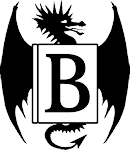Something Wicked This Way Comes
The Greentown series, Book 2
Ray Bradbury
William Morrow (HarperCollins)
Fiction, MG? Fantasy/Horror
Themes: Classics, Country Tales, Demons, Sideshows
****
Description
In the graying October of a younger America, two small-town boys - Will Halloway and Jim Nightshade - are thrilled when they catch wind of a carnival coming to Greentown. Mr. Cooger and Mr. Dark promise all manner of thrills and amusements, from the mystifying Mirror Maze to the horrifying collection of circus freaks. But from the night of the carnival's eerie arrival, darkness and shadows spread across the town. Will and Jim find the bonds of their friendship tested to the utmost as they face temptations and terrors that have bested Mankind since the dawn of human awareness.
Review
The Disney movie based on this book has long been a Halloween staple for me, but I'd never gotten around to reading it until now. Even though Bradbury wrote the
screenplay for the movie, there are distinct differences. His prose runs thick with metaphors, giving the story's many dark images and moments of terror a nightmarish,
semi-lucid quality. Through it all, a decent story and solid characters unfold. I found the writing a bit thick at times, making for slow reading, and memories of the
movie lingered long past the point when the stories diverged, but overall it was a memorable book. I still think I liked the movie's version of events a little better,
though.
Incidentally, though this is technically Book 2 in a series centered around Bradbury's fictional Greentown, it can be read as a standalone.
(I'm also not entirely certain on the age classification - in some ways, it's more of a grown-up book, childhood as viewed through a lens of nostalgia - but I know of
people who read it as children, and I can see a certain kind of older child, one more aware and literate perhaps than some peers, appreciating it.)
 Skip to Content
Skip to Content